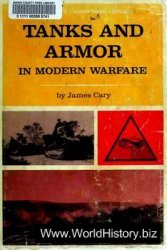On March 6, 1957, the people of Ghana gained their independence. As the first European colony in SubSaharan Africa to win its freedom, Ghana launched a march to self-government and independence that proved a catalyst for the overthrow of European imperialism throughout much of Africa. Capturing this larger significance of the achievement, the new prime minister, Kwame Nkrumah, told the jubilant independence day crowd, “Our independence is meaningless unless it is linked with the total liberation of the African continent.”
Ghanaian nationalists won their independence in a largely peaceful, democratic, and constitutional process following World War II. The success of this approach reflects the country’s history, the tactics of the independence movement’s leadership, and the character of the British colonial reaction.
The growth of modern Ghanaian nationalism sprang from deep historical roots. One source was resistance to British imperialism by Ghanaians under their traditional leaders. The Asante, for example, provoked by the unreasonable demands of the British governor, rose in revolt in 1900 under the leadership of Yaa Asantewaa. Military force had contained this primary resistance to colonial rule, but colonialism itself produced a second fount of discontent: a Western-educated African middle class. Small in numbers, but often articulate, this group included lawyers and journalists capable of challenging the British authorities with their own ideals, such as a people’s right to selfdetermination. J. E. Casely Hayford, a member of this new elite, organized the National Congress of British West Africa in 1920. This movement, often seen as a predecessor to modern nationalism and Pan-Africanism, faltered because of the physical separation of Britain’s colonies, lack of a strong mass base, and political competition between the traditional and Western-educated elites.
After World War II, British officials still regarded the Gold Coast, as Ghana was then known, as a “model colony.” They believed harmony could be achieved in a system that shared power largely between British officials and the chiefs, with a secondary role for the Western-educated middle class. In 1946 Governor Sir Alan Burns introduced a new constitution that actually established an African majority on the legislative council, but time had run out for Britain’s gradualist measures. New forces were about to remake the colony’s politics.
In 1947 members of the colony’s Western-educated elite established the United Gold Coast Convention (UGCC). Its leaders, such as J. B. Danquah, were mostly lawyers who sought self-government in “the shortest time possible” and greater representation for their class on the legislative council. As general secretary for the party, they recruited Kwame Nkrumah. After twelve years overseas, Nkrumah returned to the Gold Coast, having lived the life of an impoverished foreign student in the United States and Britain. In a remarkable political achievement, he became head of the government in four years.
Nkrumah’s success rested in part on his ability to expand the appeal of the nationalist movement. Soon discontented young people, especially those with limited Western educations but few employment opportunities in colonial society, became some of his most enthusiastic supporters. He also gained essential backing from cocoa farmers who were angered by the colonial administration’s efforts to control their crop’s swollen shoot disease by cutting down affected trees.
To these elements of his coalition he added support among low-level civil servants, teachers, market women, and the working class.
In 1948 the heavy-handed British response to protests in Accra radicalized politics in the colony. High prices had led to a consumer boycott of foreign-owned stores, when a British officer fired on the veterans’ march to the governor’s residence. Rioting broke out and spread to other towns. With Cold War fears of communism on their minds, British officials arrested the top six leaders of the UGCC. The British soon released them, but their detention already had made them popular heroes and increased the membership of the party. With one exception, however, the leaders were men of property and unlikely revolutionaries. They were willing to accept the initiative of the new British governor, Sir Arden-Clarke, to work out a moderate program of constitutional reform.
Nkrumah, the exception, broke with this gradualist approach of his colleagues, whom he now denounced as men of “property and standing.” In June 1949 he launched the rival Convention People’s Party (CPP). It’s clear and uncompromising slogan, “Self-Government NOW,” soon captured the imagination of the masses. The following January, he initiated a campaign of strikes and boycotts, known as “positive action,” designed to force the colonial administration to concede immediate self-government. Nkrumah’s subsequent arrest and sentence to three years in jail transformed him into a martyr.
When elections for the new Legislative Assembly were held in 1951, the CPP swept the elected seats, winning thirty-four out of thirty-eight. Recognizing this undeniable victory, Arden-Clarke performed an amazing about-face, releasing Nkrumah from prison and asking him to become leader of government business. Nkrumah and his followers had adopted white caps as symbols of solidarity with India’s nonviolent struggle for freedom. When they emerged from prison, they proudly inscribed P. G., for “prison graduate,” on their caps.
Over the next six years, Nkrumah pressed for and won increasing powers of self-government leading to independence. The British responded in a largely cooperative fashion to this transfer of power. The CPP won elections in 1954 and 1956, providing Nkrumah with the ability to establish a unitary state rather than the federal constitution preferred by some of his regional opponents. After independence, Nkrumah’s government would be marred by authoritarian tendencies and economic mismanagement, but as a nationalist leader and visionary Nkrumah has remained a hero of African liberation.
The choice of the country’s new name at the time of independence in 1957 referred back to the medieval
West African empire of Ghana and reflected pride in the state’s African identity. From Mali to Zimbabwe, other African nationalists would follow this example. Many also would recognize the lessons and achievement of the Ghanaian struggle: the popular support for an uncompromising demand for freedom, the power of a mass party, and the vision of independence achieved.
Brian Digre
See also: Colonialism, Overthrow of: Nationalism and Anticolonialism; Colonialism, Overthrow of: Sub-Saharan Africa; Nkrumah, Kwame.
Further Reading
Apter, David. Ghana in Transition. 2nd rev. ed. Princeton: Princeton University Press, 1972.
Austin, Dennis. Politics in Ghana, 1945-60. Oxford: Oxford University Press, 1964.
Birmingham, David. Kwame Nkrumah: The Father of African Nationalism. Rev. ed. Athens: Ohio University Press, 1998.
Nkrumah, Kwame. Ghana: The Autobiography of Kwame Nkrumah. London: Thomas Nelson and Sons, 1957.
Padmore, George. The Gold Coast Revolution. London, Dennis Dobson, 1953.
Rooney, David. Kwame Nkrumah: The Political Kingdom in the Third World. New York: St. Martin’s Press, 1989.




 World History
World History









